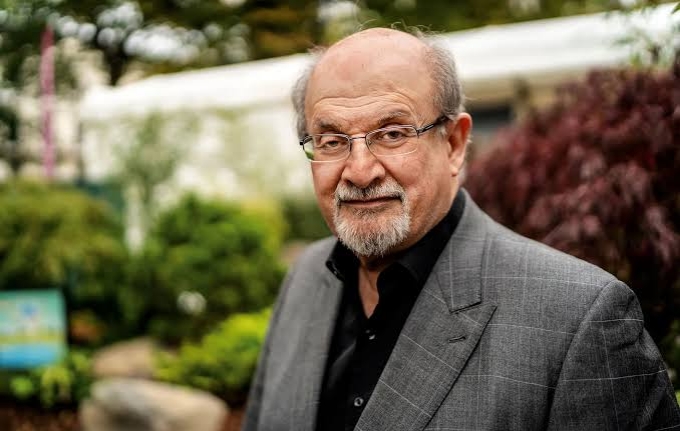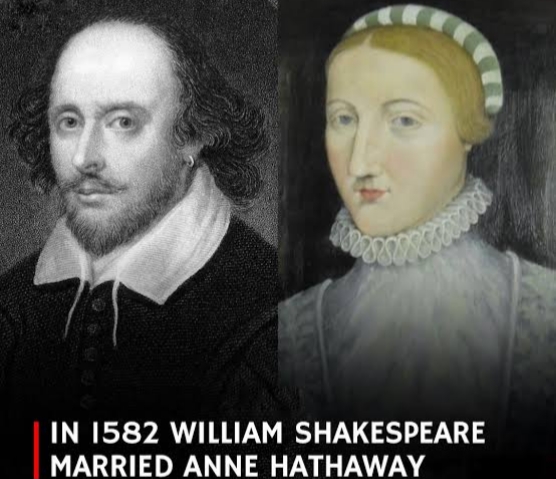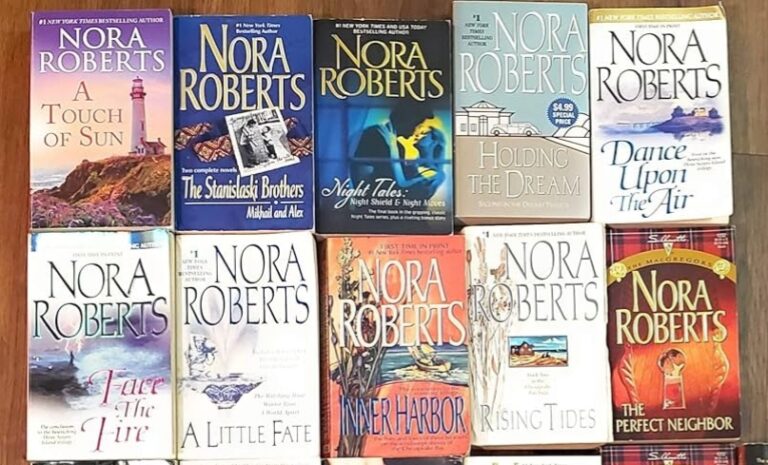Salman Rushdie is one of the most celebrated, controversial, and resilient authors of the late 20th and early 21st centuries. His writing blends myth, history, politics, and magical realism, shaping modern literature and sparking global debates on freedom of expression. Beyond his novels, Rushdie’s life has been marked by exile, fatwas, assassination attempts, and a relentless pursuit of artistic truth.

This biography explores Rushdie’s early life, education, career milestones, major works, challenges, achievements, and legacy. It also examines why his story remains relevant in 2025, not just for readers of literature but for anyone concerned with the interplay of art, politics, and freedom.
Early Life and Background
Childhood in India
Salman Rushdie was born Ahmed Salman Rushdie on June 19, 1947, in Bombay (now Mumbai), India, just two months before India’s independence. His family belonged to a liberal, well-educated Kashmiri Muslim background. His father, Anis Ahmed Rushdie, was a Cambridge-educated businessman, while his mother, Negin Bhatt, was a teacher.
Growing up in post-colonial India deeply influenced his worldview. The mix of Hindu, Muslim, and Western cultural traditions in Bombay later became central to his writings, particularly in his most famous work, Midnight’s Children.
Education Abroad
At age 14, Rushdie was sent to Rugby School in England, one of Britain’s elite boarding schools. Later, he studied at King’s College, University of Cambridge, graduating with honors in history. This dual exposure to India’s vibrant cultural tapestry and England’s academic traditions shaped his bicultural identity, which he would explore in novels balancing East and West.
Salman Rushdie: Quick Overview Table
| Attribute | Details (as of 2025) |
|---|---|
| Full Name | Ahmed Salman Rushdie |
| Date of Birth | 19 June 1947 |
| Age | 78 years |
| Birthplace | Bombay (now Mumbai), India |
| Nationality | British-Indian |
| Profession | Novelist, Essayist, Public Intellectual |
| Genres | Magical Realism, Historical Fiction, Postcolonial Literature |
| Education | King’s College, Cambridge (History) |
| Notable Works | Midnight’s Children, The Satanic Verses, Shalimar the Clown, Victory City |
| Awards | Booker Prize (1981), Booker of Bookers (1993, 2008), Knighthood (2007), PEN Pinter Prize (2014), others |
| Net Worth | Estimated $15–18 million (literary earnings, speaking engagements, film rights) |
| Marital Status | Divorced (married five times; notable marriage: Padma Lakshmi, 2004–2007) |
| Children | Zafar Rushdie, Milan Rushdie |
| Major Controversy | The Satanic Verses fatwa (1989), renewed attention after 2022 stabbing |
| Current Residence | Primarily New York, USA |
| Legacy | Defender of free speech, pioneer of postcolonial literature, influential global author |
Early Career and First Works
From Advertising to Literature
After Cambridge, Rushdie initially worked in advertising in London, crafting witty campaigns (famously creating the “Naughty but Nice” slogan for cream cakes). This sharpened his wordplay and satirical style, but he longed for more serious writing.
In 1975, he published his debut novel, Grimus, a work of science fiction infused with philosophical undertones. Though it received little attention, it showed Rushdie’s early tendency to experiment with myth, allegory, and complex narrative structures.
Breakthrough with Midnight’s Children
Literary Revolution
Rushdie’s second novel, Midnight’s Children (1981), changed the course of English-language fiction. The book narrates India’s transition from colonialism to independence through the life of Saleem Sinai, born at the exact moment of India’s independence in 1947.
The novel won the Booker Prize in 1981, and later the “Booker of Bookers” twice (in 1993 and 2008), cementing it as one of the greatest novels in modern English literature.
Themes and Style
Midnight’s Children introduced readers to Rushdie’s trademark magical realism—inspired by Latin American writers like Gabriel García Márquez—intertwined with historical events. The book’s success placed Rushdie alongside other literary innovators like V.S. Naipaul and Toni Morrison, but with a distinctly South Asian voice.
The Satanic Verses and Global Controversy
Publication and Outrage
In 1988, Rushdie published The Satanic Verses, a novel exploring migration, identity, and faith through a magical-realist lens. However, sections perceived as blasphemous against Islam triggered global outrage.
On February 14, 1989, Ayatollah Ruhollah Khomeini of Iran issued a fatwa, calling for Rushdie’s death. The decree forced Rushdie into hiding under British government protection for nearly a decade. Bookstores were bombed, translators were attacked (Hitoshi Igarashi, the Japanese translator, was murdered), and the controversy sparked worldwide debates on freedom of speech vs. religious sensitivities.
Life in Hiding
Rushdie described these years in his 2012 memoir, Joseph Anton (the alias he used while in hiding). The fatwa not only changed his personal life but also symbolized the collision between artistic freedom and fundamentalist politics.
Later Works and Literary Evolution
Despite the fatwa, Rushdie continued to write prolifically, producing novels, essays, and criticism:
- Haroun and the Sea of Stories (1990): A children’s allegory defending storytelling itself.
- The Moor’s Last Sigh (1995): A family saga set against India’s politics and art history.
- The Ground Beneath Her Feet (1999): A reimagining of rock ‘n’ roll mythology.
- Shalimar the Clown (2005): A tragic story set in Kashmir, exploring terrorism and revenge.
- The Enchantress of Florence (2008): Blending Mughal India with Renaissance Italy.
- Quichotte (2019): A modern reworking of Cervantes’ Don Quixote, shortlisted for the Booker Prize.
- Victory City (2023): Set in a fictionalized 14th-century South Indian empire, hailed as one of his finest late works.
His writing style matured from exuberant magical realism to more historical and reflective narratives, yet always with sharp wit and cultural hybridity.
Personal Life
Rushdie has been married five times:
- Clarissa Luard (1976–1987)
- Marianne Wiggins (1988–1993)
- Elizabeth West (1997–2004)
- Padma Lakshmi (2004–2007) – Indian-American model, actress, and TV host
- As of 2025, Rushdie has not remarried but remains active in literary and intellectual circles.
He has two sons, Zafar and Milan, both of whom have pursued careers outside of literature.
Assassination Attempt in 2022
On August 12, 2022, while preparing to give a lecture in Chautauqua, New York, Rushdie was stabbed multiple times by an assailant. He suffered severe injuries, including the loss of vision in one eye and damage to his hand.
The attack reignited global discussions on the enduring consequences of the fatwa, freedom of expression, and the safety of public intellectuals. Despite the injuries, Rushdie made a remarkable recovery and returned to public life, symbolizing resilience and the power of words over violence.
Awards and Achievements
- Booker Prize (1981) – for Midnight’s Children
- Booker of Bookers (1993, 2008) – best novel among Booker winners
- Knighthood (2007) – by Queen Elizabeth II for services to literature
- PEN Pinter Prize (2014) – for literary courage
- Outstanding Lifetime Achievement in Cultural Humanism (2019) – Harvard University
Rushdie’s works have been translated into over 40 languages, making him one of the most influential global writers.
Influence and Comparisons with Contemporaries
Salman Rushdie is often compared with:
- Gabriel García Márquez – for magical realism
- V.S. Naipaul – for postcolonial themes
- Arundhati Roy – for political engagement in Indian literature
Unlike some contemporaries, Rushdie has been both a literary innovator and a political symbol, embodying the risks writers face when they challenge orthodoxies.
Challenges and Criticisms
Pros of Rushdie’s Life Choices
- Pioneered postcolonial literature in English.
- Defended freedom of expression against censorship.
- Blended Eastern and Western traditions, expanding global literature.
Cons and Criticisms
- Accused of insensitivity toward religious beliefs.
- Criticized for sometimes prioritizing controversy over nuance.
- Personal life, especially multiple marriages, often overshadowed his literary achievements.
Legacy and Why Salman Rushdie Matters Today
Salman Rushdie’s legacy lies not just in his novels but in his symbolism as a defender of free thought. In a world still grappling with issues of censorship, extremism, and cultural identity, Rushdie’s story continues to resonate.
His influence extends to younger writers like Mohsin Hamid, Kamila Shamsie, and Arundhati Roy, who explore similar intersections of politics, history, and storytelling.
In 2025, Rushdie remains a living reminder that literature is not merely entertainment—it can be an act of resistance and survival.
FAQs about Salman Rushdie
1. Why is Salman Rushdie famous?
He is best known for Midnight’s Children and the global controversy surrounding The Satanic Verses.
2. Did Rushdie win the Nobel Prize in Literature?
As of 2025, he has not, though he is frequently mentioned as a potential laureate.
3. How did the 2022 attack affect him?
Rushdie lost sight in one eye and mobility in one hand but survived, returning to public speaking and writing.
4. What makes Midnight’s Children so important?
It captured the spirit of post-independence India through magical realism and innovative narrative style, revolutionizing postcolonial literature.
5. What is Rushdie’s legacy?
Beyond his novels, he symbolizes resilience and the fight for freedom of expression worldwide.
Final Thoughts
Salman Rushdie’s life is more than a biography—it’s a story about art’s power to challenge, provoke, and survive. His works remain essential reading for anyone interested in literature, politics, or the struggle for freedom in a complex, interconnected world.
Thank you for reading!
Stay tuned for more inspiring Books summary, Author spotlight, Trend Books & more get full information on TheBooksX.com!






